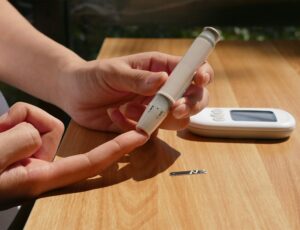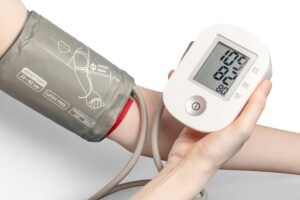Wondering how to prevent dementia? Does intermittent fasting help?

Fortunately for Boomers and Gen X, more and more theories are coming to the forefront on how to prevent dementia. Here are several areas to look at now to potentially avoid dementia later.
Women Who Fast is a participant in the Amazon Services LLC Associate Program, which means we receive a commission if you purchase through our links at no extra cost to you.
How to prevent dementia? Take a second look at some of the things you may be ignoring
By the time we hit our 40’s, we are pretty well informed about the ways we can stay healthy. But for some of us, these health guidelines have reached a saturation point and at some point became just noise. We’ve heard the same old things over and over and at some point tuned out. And that’s not always bad, I suppose. We reason that it’s our life and we’d rather “live it up” now because we “only have today.”
While that all makes sense (and I’ve said it myself!) the truth of the matter is, many of us have a lot more than today. We have full futures filled with love, children and grandchildren still to come. We have people that make us smile and people who smile because of us.
But at the same time, some of us are facing years of health issues. While some are unavoidable, others are definitely preventable. And while there’s no sure sure way to prevent dementia, there are certainly some common conditions that seem to cause most of the issues. Let’s take a look at some of these with fresh eyes and an open mind.
Women Who Fast content is for informational purposes only. It is not intended for health or medical advice. It does not replace health or medical advice or treatment from a physician. Readers should consult their doctor or a qualified healthcare professional for specific health concerns or questions. The information provided in this article is to be used by users at their own risk.
Theories on how to prevent dementia
1.) An easy way to prevent dementia is simply walking…even just a little.
“Taking at least 3,800 steps per day is linked to a lower risk of dementia, according to a recent study published online Sept. 6, 2022, by JAMA Neurology.” (Harvard Health Publishing) That’s less than two miles total all day long. The study goes on to say that the benefit increases for every step you take, up to 9,800 steps. Yes, the faster the steps are the better. BUT, the important part is making sure your body is moving every day. Even if it’s slow movement
{RELATED Post: Workout At Home With YouTube In Ten Minutes Or Less!}
2.) Is the velocity of the blood pushing against the walls of your blood vessels acceptable?
See what I did there? Yes, we are talking about your blood pressure. But for a moment, let’s look at it differently. You have this one body. Shouldn’t you at least know if the life force in your veins is operating at the correct force? Especially since it can typically be corrected pretty easily?
According to the American Heart Association News, “the longer a person’s blood pressure level remains under control, the lower their risk may be for dementia.”
In fact, according to the World Alzheimer Report in 2014, multiple studies have shown that people who have elevated blood pressure between the ages of 40-64 years of age are more likely to develop vascular dementia later on in life.
If you haven’t had your blood pressure checked lately, or should be monitoring it regularly, get an inexpensive blood pressure monitor to have at home. It will either bring peace of mind or let you know what to discuss with your doctor at your next appointment. (Plus, as you get older, doctors will advise you to have a monitor at home any way.)
3.) Are you hearing what most of the other people in the room are hearing?
I was surprised when I discovered this one when researching how to prevent dementia. But I’m definitely going to mention it to my 87 year old dad. He’s been shaking off the need to get his hearing checked for a couple of years now. Meanwhile, he misses out on a lot of family conversations he used to be a big part of.
According to the National Institutes of Health, “hearing aids reduce the rate of cognitive decline in older adults at risk of dementia by almost 50% over a three-year period.” That’s significant, don’t you think?
4.) Is your pancreas constantly pumping out insulin to protect your body from too much sugar?
Diabetes occurs when the body is unable to make enough insulin or use the insulin it makes effectively. Type 1 diabetes occurs when the immune system destroys the insulin
My understanding of type 2 diabetes (and remember, I’m not a doctor!)
The pancreas produces insulin every time the brain detects glucose (sugar) in the blood. In fact, some studies say that even sugar substitutes can trigger insulin production because the taste buds tell the brain “this may be sugar incoming.” The brain signals the pancreas to produce and release insulin which triggers the cells in the body to open up and invite this sugar in to process for energy. Sometimes (actually many times!) the cell is already stuffed with all the sugar we’ve already provided. And that’s when the cells become resistant to the insulin’s message. So the sugar remains in the blood prompting the pancreas to produce even more insulin. (This may be why those pancreatic beta cells get worn out.)
And also, by the way, all that extra sugar prompts the body to quickly ship that sugar to our fat reserves for use (maybe…hopefully?) at a later date.
According to the Center for Disease Control and prevention, studies show that type 2 diabetes “doubles the dementia risk and may cause it to develop a few years earlier.” (American Heart Association News) This is likely because many of the same problems that increase the risk of type 2 diabetes also increase the risk of dementia.
Diabetes is nothing to mess around with. If you haven’t had your blood sugar tested lately, please schedule an appointment with your doctor. Or to ease your concerns before your next physical, consider a home test. (But don’t forget, these tests are not a replacement for medical appointments.)
5.) Do you have extra pounds on your body that makes it hard for your body to function like it’s supposed to?
We are bombarded constantly with the message that being extra-overweight is not good for us. At the end of the day, carrying around accumulated fat (particularly around our bellies) is literally dangerous. You know it, I know it. In fact we’ve heard it so much over the course of our lives, some of us don’t even flinch. But at the end of the day, obesity is a significant risk factor for serious medical conditions later in life.
And now there’s a new study (published on NBC News) that suggests being overweight in midlife makes it more likely we will develop Alzheimer’s. And perhaps even scarier? The study shows that the brain shrinkage in obese people is similar to those with Alzheimer’s. It’s not a pretty picture, but it’s certainly something to think about.
I know as well as anyone how hard it is to lose weight and keep it off. I don’t even remember a time when I wasn’t either on a diet or thinking I needed to be. After all the calorie counting, liquid diets, organizational diets, etc., I’ve realized that intermittent fasting is the one I can comfortably live with and return to quickly and easily. (You can read more of my story in Reasons To Lose Weight.)
When the wave hits to try and lose weight…
I know what it’s like to walk around every day thinking I need to lose weight. And I know the determination to finally do it comes in waves. When your next wave hits, please take a second look at the scale you are using. Losing muscle weight does not help your BMI. Losing fat improves your BMI. Most scales just show your total weight when it’s the weight of your fat you need to be concerned about.
I use a smart scale that tells me exactly where the weight loss is coming from and shows me what’s working for fat loss and what isn’t. It’s pretty cool to see my muscle weight going up and fat going down on the free app. This is the optimal way to improve that BMI.
I also love the smart measuring tape. No more contorting around to measure body parts and the measurements are recorded for you on the same app the scale uses. Plus, you can see exactly where you are losing inches before you even notice it in the mirror.

6.) Stop smoking and excessive drinking
We all know this. But we can’t talk about how to prevent dementia without including these two:
Smoking: According to the Bright Focus Foundation, research estimates that “current smokers have a 30 percent to 75 percent greater risk for developing dementia when compared with nonsmokers.”
Excessive Drinking: “Heavy drinking (> 21 units per week) is associated with brain changes that include cognitive decline and dementia.” (Alzheimer’s Research)
Enough said.
How to prevent dementia? Try intermittent fasting…
I was about ten years old in 1978 when I first heard the term “hardening of the arteries.” My sweet grandma (on my dad’s side) was having trouble remembering how to set the table. She was admitted to the hospital for some tests and that was the diagnosis I heard. Tragically, just a few years later, my grandpa (on my mom’s side) was diagnosed with the same condition. He was getting lost on the way home and telling the same stories over and over again.
When I asked my parents what “hardening of the arteries” meant, they were as confused by it as I was. However, I remember my dad saying that some type of plaque had formed in my Grandma’s brain that was causing her not to remember things. I learned years later that my grandparents probably had Alzheimer’s disease and it likely did have to do with some sort of plaque. Apparently this plaque was shown to impair communication between brain cells resulting in cognitive decline.
Fast forward to 2023
According to an article from ScienceDirect published August 21, 2023, “the accumulation of amyloid plaques is the most well-documented biochemical hallmark of Alzheimer’s disease.”

However, according to Healthworld, Amyloid-ß in its corrupted form later in life can destroy nerve cells. This triggers the loss of thought and memory that is associated with Alzheimer’s.”
Intermittent Fasting and Autophagy
But here’s the encouraging news! “A laboratory study has found that time-restricted feeding corrects the circadian disruptions of Alzheimer’s disease, improves memory, and reduces the accumulation of amyloid–a protein tied to dementia progression–in the brain.” (Medical News Today)
Researchers believe that autophagy–“the body’s cellular recycling system”–is the process that reduces the risk of Amyloid-ß accumulation in the brain. Because autophagy seems to deteriorate damaged components in the cell. So when fasting starves the cells, autophagy is believed to digest these damaged components.
According to Science Direct, intermittent fasting is an autophagy activator. “Intermittent fasting has been associated with longevity and health through autophagy and reduction of inflammation activity.”
Experts agree that intermittent fasting is not for everyone. Please read our terms of use.
The prospect of developing dementia for some of us seems a long ways away. For others of us, the worry of it creeps in and out from time to time. For those of us taking care of a parent or family member with dementia, the reality of it hits very quick. If you worry about dementia, perhaps you can choose one or more of the ways we’ve discussed about how to prevent dementia to implement, and go from there.
At the same time, I want to encourage you to do some research on intermittent fasting and see how your doctor feels about it at your next appointment. It’s changed my life! And remember to encourage yourself every time you take a few extra steps getting around every day. I wish you all the best!
-Kim







